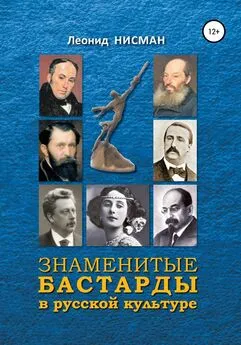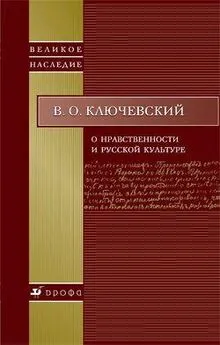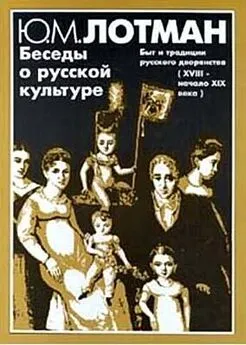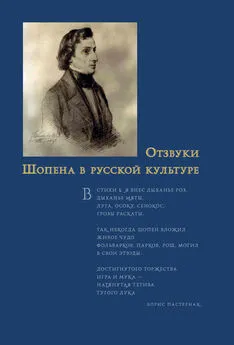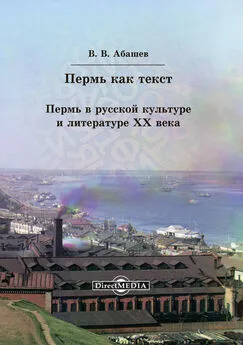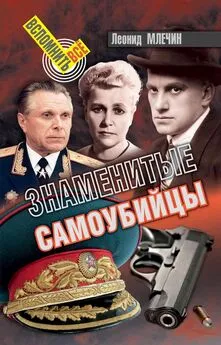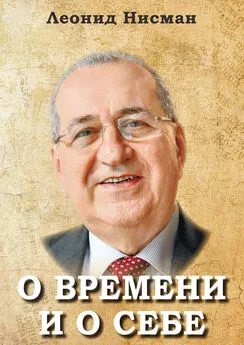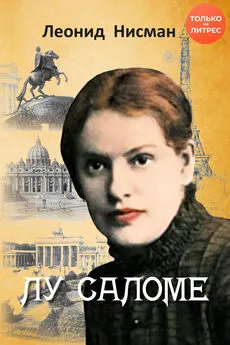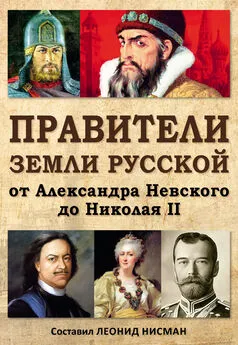Леонид Нисман - Знаменитые бастарды в русской культуре
- Название:Знаменитые бастарды в русской культуре
- Автор:
- Жанр:
- Издательство:неизвестно
- Год:2021
- ISBN:нет данных
- Рейтинг:
- Избранное:Добавить в избранное
-
Отзывы:
-
Ваша оценка:
Леонид Нисман - Знаменитые бастарды в русской культуре краткое содержание
Знаменитые бастарды в русской культуре - читать онлайн бесплатно ознакомительный отрывок
Интервал:
Закладка:
Today, when secretive children of famous parents having been kept out of the public eye, come out of the blue night after night on the 1st Russian TV channel, as from the legend of the invisible city of Kitezh, and all this is hotly debated in front of millions of viewers, the word «bastard» is rather exotic.
But back in the old days it meant a lot.
From way back the society has never placed any value or status on bastards. Since lawful marriage was considered the basis of the family, children born out of wedlock legally had no family, no ancestry, no class. They were often deprived of their basic civil rights altogether, and they became outcasts forever.
Truly Shakespearian passions have always run high around children of sin trying to assert themselves in our rough time.
This very problem is touched upon in the new Leonid Niessmann’s book, which we strongly recommend to pick up and read carefully.
The author is certainly an exceptionally interesting person. I would even call him unique. A Moscovite who grew up in the Arbat, a friend of many famous Russian academic figures, men of art and culture, a member of the Presidium of the International Union of Russian Compatriots, Leonid has literally absorbed the best old Moscow cultural traditions. Having settled in Germany, Professor, Doctor of Engineering, author of a number of world-class inventions Leonid Niessmann did not accumulate hard feelings for his homeland like some other expats. On the contrary, he turned hand to his favorite activity – to look for and, what counts most, to discover unknown and challenging pages in Russian culture and history.
His book «The Russian Language. Difficulties, Mysteries, Subtleties and Something Else.» published in 2018, was widely discussed both in Russia and abroad. Easily and even playfully he plunged into the deeps of the Russian language, the etymology of sayings, set phrases, the history of words. And all his findings are presented by him in a lively and fascinating manner. Behind this work there is a huge layer of history and a feeling of «person’s self-identity», if you remember Pushkin's definition.
The vital bread our spirit craves
Comes from two loves divinely cherished:
One for our home to ashes perished,
One for our fathers’ sacred graves.
From the beginning of Creation
By God’s own will they stand to be
Of man’s self-rule the foundation,
Of his grandeur the guarantee…
What ingenious words! That means, a person becomes a person when he knows his past and his history.
Leonid Niessmann's book «Famous Bastards in Russian Culture» is read in just the same breath. Within the covers of the book the great names of Russia, united by mysteries and their doubtful backgrounds, appear to be living people fighting for their place in the sun.
And thus the whole picture of the characters’ lives becomes bright, protean and comprehensive. And, no doubt, the heroes themselves make up the Golden Pantheon of Russia.
The great poet, who several times saved Pushkin from penal servitude among other things, was Vasily Andreyevich Zhukovsky. Along with Karamzin, he was the father of Russian sentimentalism, being the son of a landowner from the Central Russia and an imprisoned Turkish woman captured during the Russian-Turkish war.
One of the founders of the Association of Itinerants, a brilliant painter Vasily Perov, the author of the great paintings «The Last Tavern at The Outpost», «Troika» and many others, was born thanks to the inflamed feeling of a provincial Prosecutor, a German Baron by blood, to a native of the city of Tobolsk. Despite the fact that soon after the boy’s birth his parents got married, the future artist had no right to have his father's name and was listed by the name of the godfather – Vasiliev. He became Perov after a humorous nickname was given to him by the verger, who taught the boy to read and write.
At the age of 14 Afanasy Fet, the author of most heart-stirring lyrical lines not only in Russian, but also in world poetry, was deprived of the title of hereditary nobility on account of failure to prove his gentrice, and this fact remained an open sore for his whole life.
A brilliant composer and chemist, the founder of epic symphonic style was born to an old Georgian Prince by a 25-year-old woman. Little Alexander, the future author of the opera «Prince Igor», was registered as the son of the house serf Porfiry Borodin and up to the age of 8 was listed as a bondslave of his own father.
An actor, stage director, one of the founders of the Russian theater school Alexander Pavlovich Lensky is the illegitimate son of burdened with a multi-child family Prince Gagarin and an Italian opera singer.
The whole galaxy of poets, writers and artists were saved from death by People's Commissar for Education of the first Russian government Anatoly Lunacharsky who, by the way, was the illegitimate son of the daughter of Director of Chernigov province schools and the actual State Counsellor.
Finally, the «Swan Princess» of Russian and world ballet Anna Pavlova, who carried the secret of her origin away with her. But people who knew her closely, as well as researchers and ballet historians studying her fantastic life, unanimously claim that in no way she could be the daughter of a retired soldier Matvey Pavlov.
Some of them assign her fabulous appearance and craving for Oriental dance to the paternity of the laundry owner, a handsome Karaite.
Nevertheless, the majority of facts from Anna Pavlova's life testify that her father was a major Moscow banker, Commercial counsellor and a well-known public figure Lazar Polyakov, in whose house her mother served.
All these stories are spotlighted by Leonid Niessmann not to luxuriate the details of birth of the great Russian sons and daughters for the thousandth time. No, he shows how Damocles’ sword of illegal birth hanging over them honed their talent and tripled their efforts.
Along with the description of the life and work of the main characters, much attention is paid to the description of their entourage.
There are also little-known details of their private life as well as rare illustrations.
Such a fascinating narration cannot plunge us enough into the abyss of Russian history and makes its characters closer and clearer, and therefore more necessary in our time.
Victor Leonidov, Candidate of historical Sciences, chief academic specialist of Russian Emigres House named after Alexander Solzhenitsyn, author and performer of songs in television series «Nikita Mikhalkov. Russian choice». Перевод Ирины Пластуновой
Бастарды. Кто это?
Кто такие бастарды? Откуда появилось это слово? Что оно означает? Хорошие вопросы, не так ли? Но, начав писать о бастардах, надо на них ответить.
В русский язык слово «бастард» пришло из средневерхненемецкого языка, а туда оно пришло из старофранцузского. Там оно означало «гибрид, помесь, потомство от скрещивания организмов, значительно отдалённых друг от друга в отношении родства». Дальнейшими сведениями о происхождении слова «бастард» наука не располагает.
Наиболее распространёнными значениями слова «бастард» в русском языке являются – «незаконнорождённый, внебрачный, побочный», то есть бастард – это человек, родившийся от отца и матери, не состоявших в законном браке. Возможно, при этом (правда, не обязательно), что один из супругов изменил другому.
Раньше это считалось ужасным позором на всю жизнь несчастного ребёнка. Считалось, что у бастардов нет и не может быть чести, поэтому им запрещалось наследовать титулы и членство в сословиях.
В русском языке существовала специальная система фамилиеположения для бастардов. От фамилии благородного родителя «отчекрыживался» один слог. Например, бастарды Трубецких звались Бецкими, бастарды Екатерины II и Потёмкина – Тёмкиными.
Везучему бастарду хоть как-то помогал тот родитель, который выше по классу (обычно, отец), а невезучему приходилось заботиться о себе самому. Впрочем, бывали случаи, когда бастарда признавал его родитель, и тогда он обретал все должные права наследования.
Например, Пьер Безухов из «Войны и мира» Льва Толстого, внебрачный сын екатерининского вельможи графа Кирилла Владимировича Безухова (его прототип – канцлер Российской империи граф Александр Безбородко).
Наряду с упомянутым выше Пьером Безуховым, в классической русской литературе XIX века встречается ещё довольно много бастардов. Например:
Саша – сын Троекурова от мамзель Мими, гувернантки Маши, милый мальчик из разбойничьего романа Александра Сергеевича Пушкина «Дубровский».
Павел Фёдорович Смердяков – слуга и повар помещика Фёдора Павловича Карамазова, его незаконнорождённый сын от городской юродивой Лизаветы Смердящей, моральный урод из последнего романа Фёдора Михайловича Достоевского «Братья Карамазовы». Фамилия Смердяков была дана ему помещиком Фёдором Павловичем Карамазовым в «честь» его матери.
Аркадий – сын знатного дворянина от его дворовой (и чужой жены), главный герой романа Фёдора Михайловича Достоевского «Подросток».
Митя – сын Николая Петровича Кирсанова от Фенечки (Федосьи Николаевны), дочери экономки, из романа Ивана Сергеевича Тургенева «Отцы и дети». Фенечка – крестьянка. Она малообразованна, глуповата и пустовата, но при этом – хороша собой и мила. Кирсанов был старше Фенечки на 20 лет.
В мировой истории известно много исторических личностей – бастардов. Среди них есть люди великие, а есть и ужасные.
Читать дальшеИнтервал:
Закладка:
